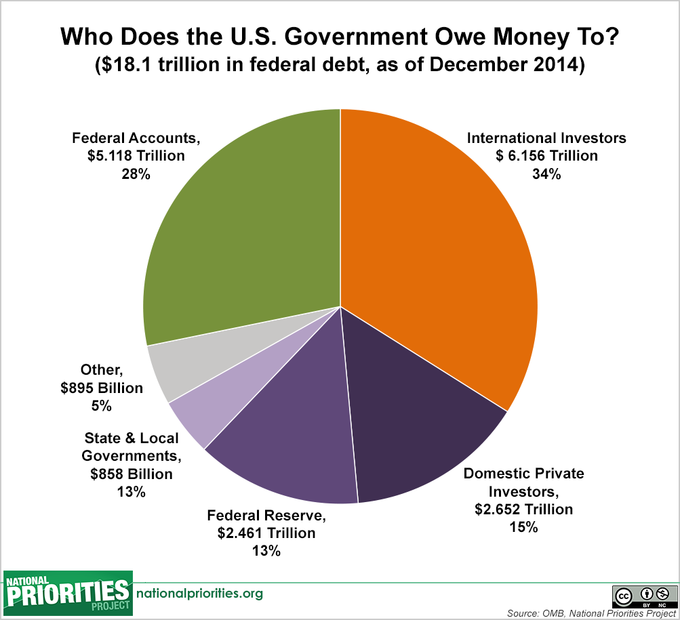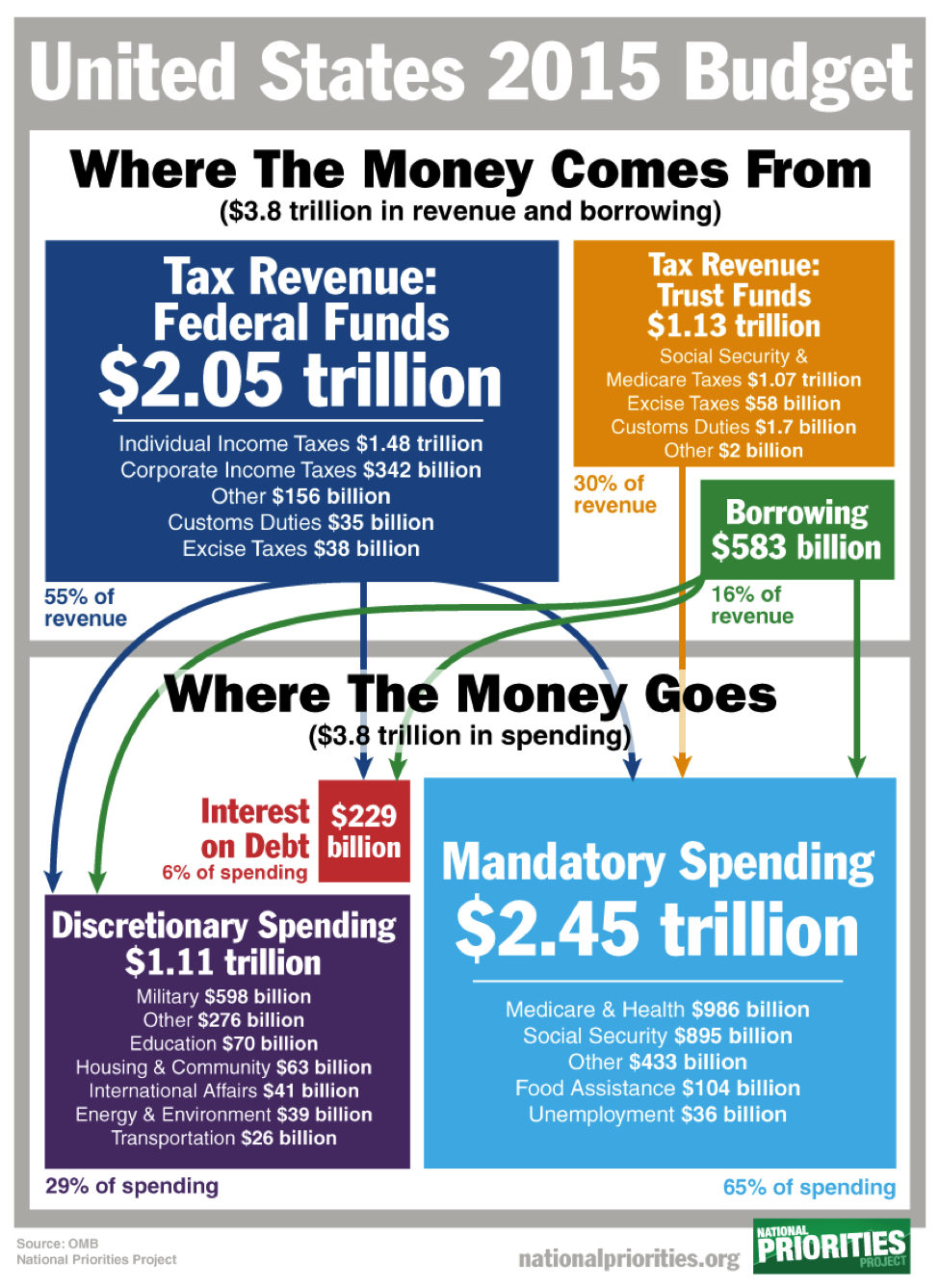https://www.nationalpriorities.org/budget-basics/federal-budget-101/spending/ is where the charts come from
OK so these charts are a little big, but they get closest to the question I think you are asking on the cost side of things. The difference between "Discretionary" and "Non-Discretionary" is that Congress must fund non-discretionary spending according to a prior federal law. All other spending they can change year by year.
On the income side, there are individual taxes, corporate taxes, taxes to fund Social Security and Medicare, Excise taxes, and Customs Duties (i.e. tariffs.)
Before the 1900s, the United States received most of its income from tariffs. That has changed with free trade agreements and the introduction of the income tax in 1913. Now income taxes pay for most of the spending because corporations can play games to get lower tax rates elsewhere whereas individuals cannot (unless you are really rich and can pay people to find ways to pay as little tax as possible). There are also taxes to fund certain programs such as unemployment insurance and Medicare/Medicaid on the federal level.
As for some of the things you hear about in the news...many Republicans are against raising any type of tax and have signed pledges from Super PACs (campaign investors) not to raise taxes of any kind. Democrats are generally willing to raise taxes, but they have not had the power to do so under the Obama administration. The trigger point as to where the U.S. could get into trouble is if the US can no longer pay the interest payments on the national debt and the international investors no longer trust the United States and the dollar as a safe haven of currency. The government shutdown in 2013 almost made that possible not that we couldn't afford to pay the interest payments, but that some members of Congress wanted to repeal the healthcare law in 2010 and would do anything, including not paying interest on our debt, to do it.
The endgame for the United States could end in a couple of ways. The worst is a sudden raise in interest rates coupled with an inability to produce revenues (i.e. a major natural disaster or multiple terrorist attacks of some kind taking down all of the major U.S. cities), and then the U.S. would be in a printing money situation hoping to survive or possibly stop paying its interest payments on the debt. We are not there yet. The other extreme is paying all of the international investors (either with tax hikes or spending cuts) who own U.S. treasury bonds and retire them so that if we do default, no other nation would have counterparty risk. If the U.S. goes bankrupt (i.e. unable to pay interest on the debt because we can't issue new bonds or cut spending to pay for the interest) because it owes California money, California simply won't get its money (although we do control the printing press in case we are techincally "bankrupt" and repay them with new currency). If the U.S. goes bankrupt and owes China money, that's a problem because China could retaliate. And that right there is the heart of why the national debt scares the crap out of many Americans: If we default on our debt and foreign investors do not get their promised revenues, foreigners can retaliate when we are broke and have no way to pay for things to defend ourselves.

It is easy to obfuscate the budget situation as a politician because our elections have turned into a reality show and whoever has the best soundbites wins. The truth is that as long as the government invests in programs that generate revenue (i.e. increasing spending on social security means more seniors spend money and thus the U.S. gets income taxes from this increase in spending) above its cost of capital (the cost of treasury bonds), we are OK. The problem is that some of the things the government spends money on do not generate this type of revenue. It's not a good idea for the U.S. to simply balance its budget like so many Americans want to do because the government is the lender and investor of last resort.
I'll link an article about why Amazon runs a deficit and its for the very same reason the government runs one: Amazon needs to invest in R&D to stay competitive because otherwise Amazon dies. Most countries have to do the same thing to stay competitive. And because politicians collectively do not want to cut spending on things that do not have good returns on investment nor raise taxes on anyone, we end up doing neither and end up praying that we generate enough revenue to pay the interest on our debt.










